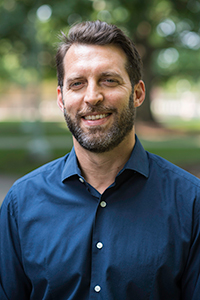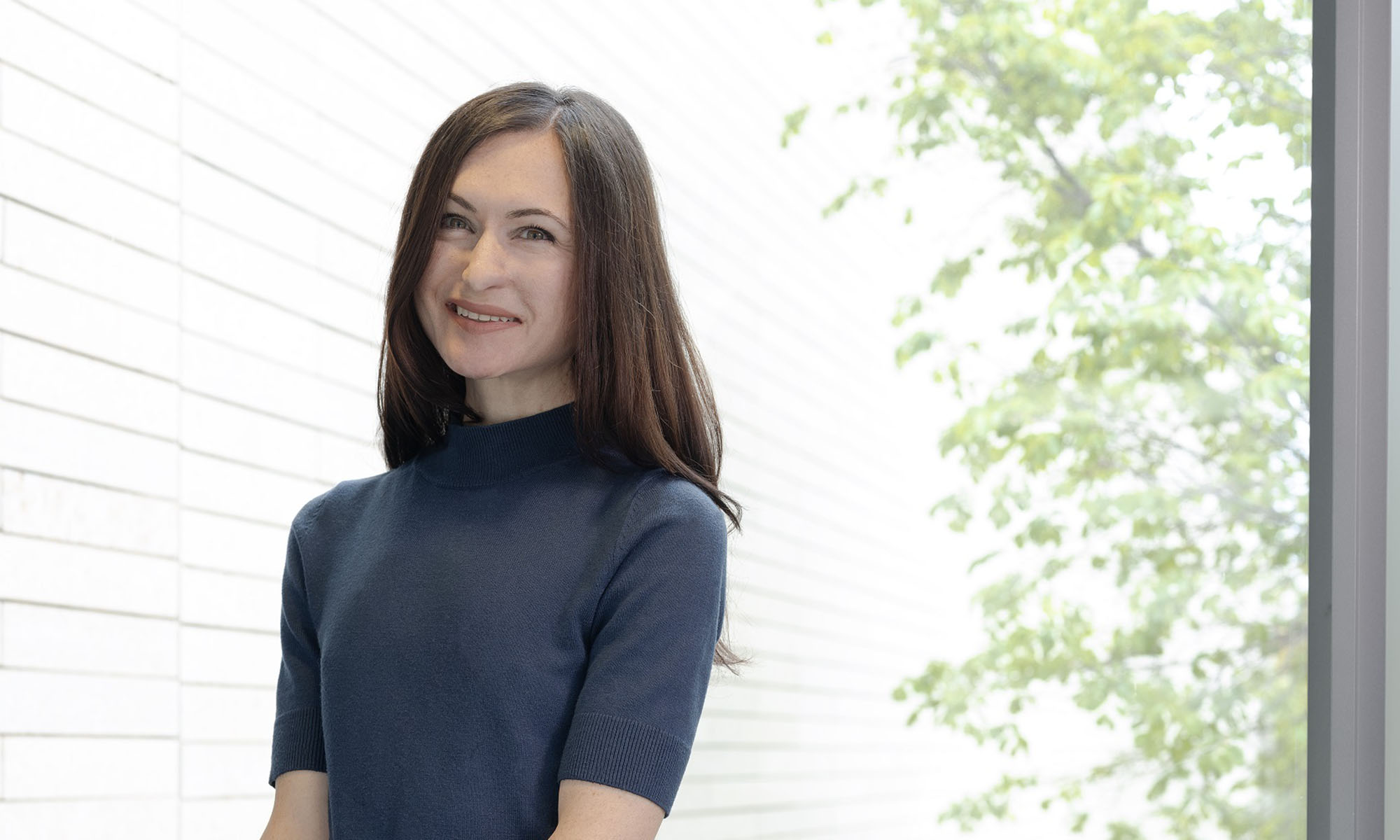
Rudi Fasan first experienced working in a laboratory as an undergraduate at the University of Padua in Italy. Then, he supervised students in labs as a graduate student at the University of Zurich and as a postdoctoral fellow at the California Institute of Technology.
An interest became a passion.
“Being able to transfer my knowledge and train younger scientists was amazing,” says Fasan, a recipient of a Goergen Award for Excellence in Undergraduate Teaching. “It was life changing.”
Fasan is a professor in the Department of Chemistry and the Andrew S. Kende Endowed Chair in Synthetic Organic Chemistry. The Fasan Lab develops new synthetic methods for the discovery of pharmacologically active molecules, with an emphasis on anticancer and antiviral agents. His laboratory is also engaged in developing new biocatalytic methods for green and sustainable chemistry.
Fasan focuses on first-hand experience. “What makes Rudi unique is his commitment to and success in training undergraduates to perform biological and organic chemistry research in laboratory,” says Todd Krauss, chair of the chemistry department. “Providing such rich experiential learning experiences is what sets the University apart from almost all other institutions. And Rudi is off the scale.”
What students are saying
“Dr. Fasan fostered a professional and lively atmosphere in the lab, and safety was always a priority. Working in his lab was the most important and influential aspect of my undergraduate education and made me realize that I wanted to continue research in graduate school. He was always willing to offer his advice and helped me through the entire process of applying to graduate school. He cares tremendously about his research and always pushes his students to accomplish greatness in the lab. At the same time, he clearly cares about the professional development of his individual students and keeps their best interests in mind.”
—Nicholas Hill ’15
“Dr. Fasan was one of the most impactful and supportive professors I had at Rochester. His marriage of critical thinking and high-yield research methods allowed me to thrive in undergraduate and graduate research endeavors. I honestly believe that I would not be as well equipped a medical student if it were not for him. I am forever grateful for the tools he bestowed on me when I met him six years ago.”
—Joshua McGough ’17
“Dr. Fasan expressed compassion and understanding for his students in every class and consistently expressed that the most important thing was that we understood the material. He speaks to students like peers and puts no artificial barrier between professor and student.”
—Samuel Perakis ’16
Since arriving at Rochester in 2008, Fasan has averaged more than four undergraduate students in his lab at any given time. “That number is remarkable,” Krauss says. “For context, faculty at Rochester average less than one student per year in their labs, so Rudi by sheer numbers is doing an order of magnitude better.”
Fasan says mentoring students in his labs is one of most rewarding aspects of his career at Rochester. “They join our group with lots of energy and enthusiasm,” he says. “For many of them, it’s their first experience doing research in a lab, and it’s a real pleasure to challenge them and watch them grow and become better scientists and better thinkers. After graduation, they move on to take on wonderful jobs in industry, academia or as physicians, and have a real impact on society.”
Rachel Bonn-Breach ’17, a third-year doctoral student in biochemistry at the Medical Center, volunteered to work in Fasan’s lab as a first-year undergraduate. “I had little experience but tons of ambition,” she says. “Rudi latched onto that ambition instantly. I never left his lab empty-handed. Every day was full of learning and experience.”
Fasan was born in a small town near Venice and earned his bachelor’s degree in pharmaceutical chemistry at Padua—the fifth-oldest university in the world. He moved on to Switzerland for his graduate studies, then landed at Cal Tech, where he worked with Frances Arnold—winner of the 2018 Nobel Prize in Chemistry.
“What drove me to Rochester in the first place was starting a research group,” Fasan says. “But then I discovered a passion for teaching and working with really talented undergraduate students. I first discovered my passion for research as an undergrad, and I’m essentially trying to reproduce that experience with my students here.”
Fasan has also taken an active role working with the David T. Kearns Center to mentor minority students who are underrepresented in the physical sciences. “We’ve done that almost from the beginning, and it’s an extremely gratifying experience,” he says. “The opportunity to be involved in relevant research is a hallmark of our University, and for minority students especially that can be a life-changing experience.”
Fasan sees his role as transferring knowledge, but also instilling a passion for chemistry. “I try to keep them engaged and interested,” he says. “It’s extremely rewarding to help them discover an interest for a particular area that may lead to a future career.”
The COVID-19 pandemic forced closure of the University’s campuses and labs last March. It was a challenging time for professors, including Fasan.
“It really was an unprecedented time,” he says. “We were shut down for a few months and slowly got going again. Our research lab is active now, and we’ve been able to ramp up to a point where we can be productive again.”
Fasan hopes his students leave the University with the “ability to think critically” in society. “We’re overwhelmed with information,” he says. “Any piece of information we want is at our fingertips. So the problem becomes not how to acquire information, but how to process it in a critical way—to discern between quality information and lower quality information and even misinformation.”
He says the Goergen Award is “an incredible honor,” but also a recognition of the dozens of students who have worked in his lab over the years. “Their contributions, enthusiasm, and experience have all benefited the lab.”
Read about the other recipients of this year’s Goergen Award.


